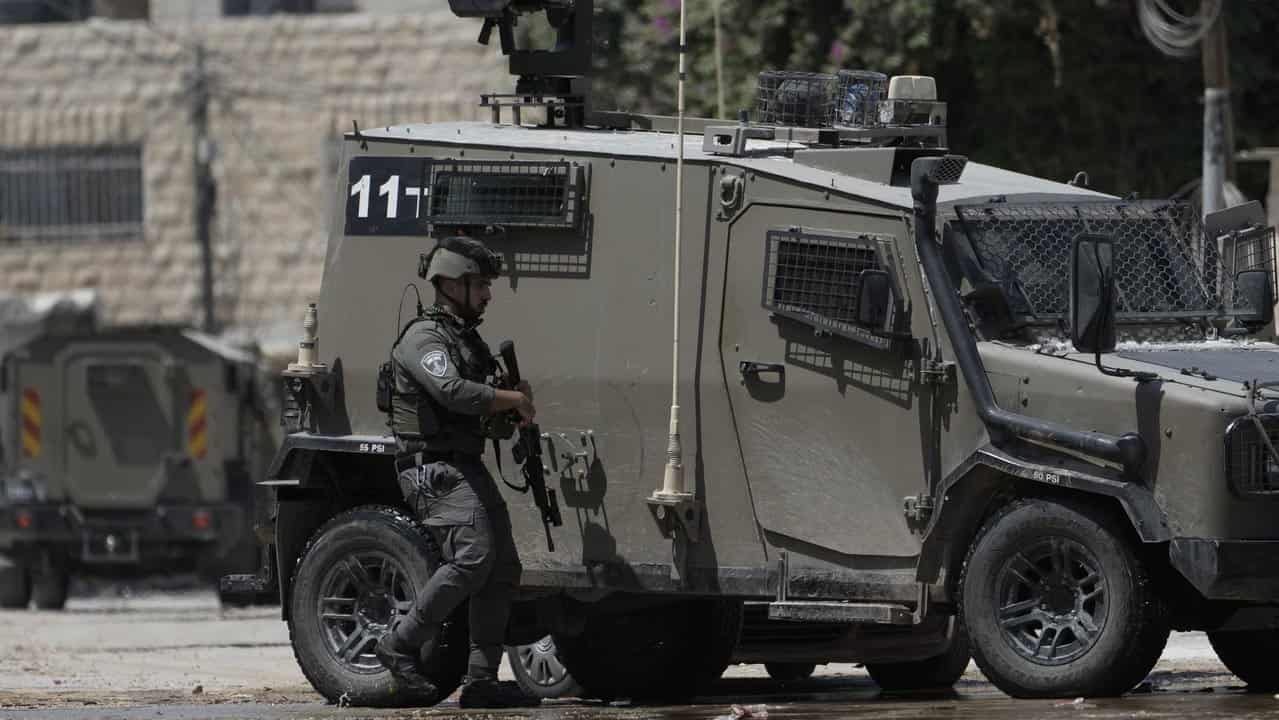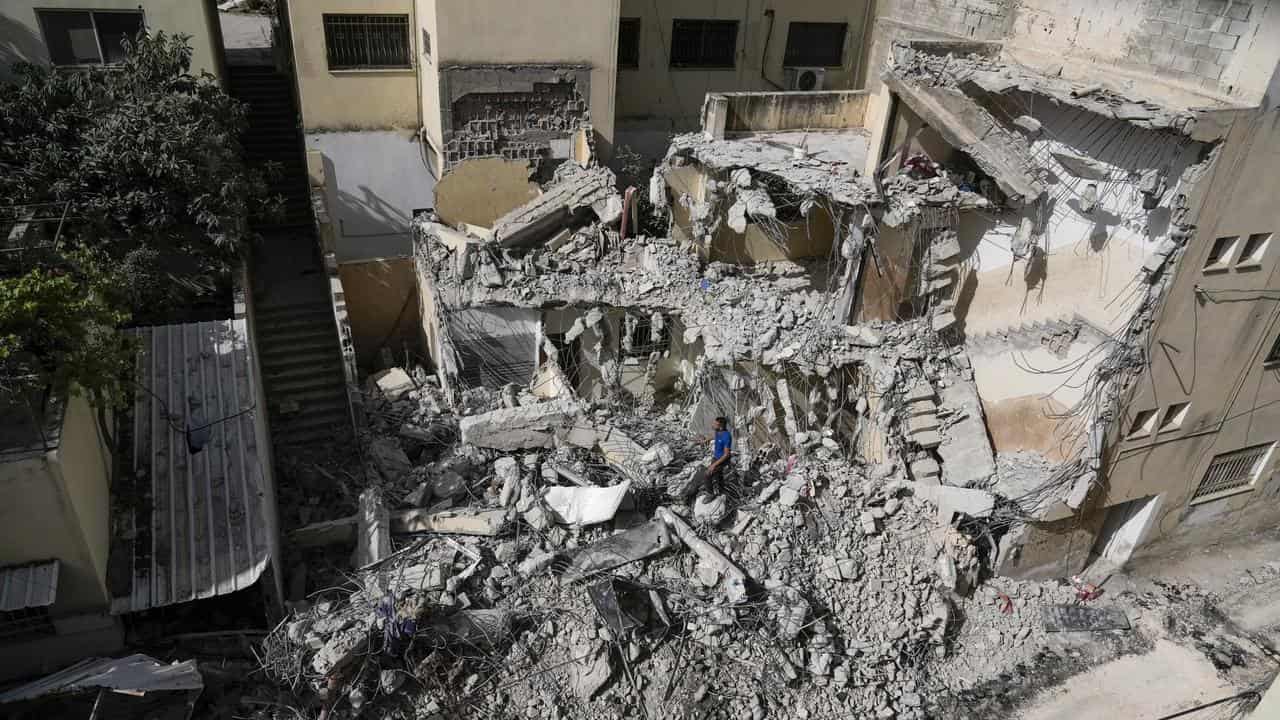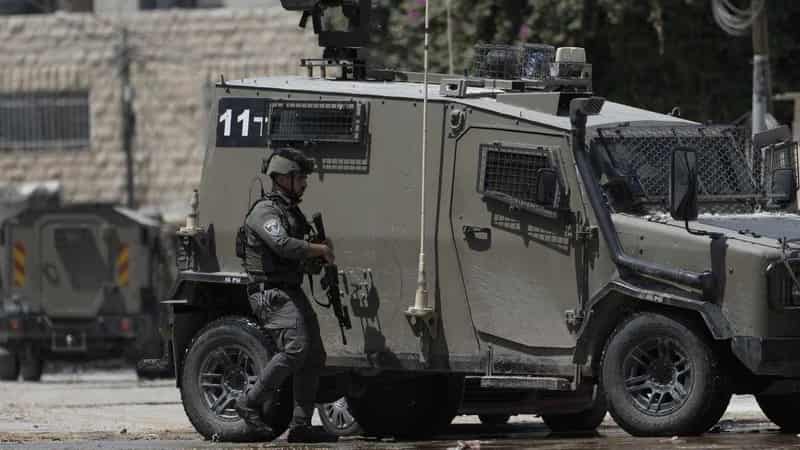
The Israeli military says its troops have killed five Palestinian fighters who were hiding inside a mosque in the West Bank city of Tulkarm, in one of the largest assaults on the occupied territory for months.
The operation, which a Reuters witness said has yet to conclude, began in the early hours of Wednesday with hundreds of Israeli troops backed by helicopters, drones and armoured personnel carriers raiding the flashpoint cities of Tulkarm, Jenin and areas in the Jordan Valley.
There was also a complete network outage at Jawwal, one of the two main telecommunications companies in the Palestinian territories of Gaza and the West Bank, according to the Reuters witness.
Palestinian health authorities said at least 12 Palestinians were killed in Wednesday's operations.
In Jenin on Thursday, bulldozers edged along empty streets as the sound of drones pierced the sky, while Israeli troops remained stationed in front of the city's main hospital, searching ambulances.
The military on Wednesday blocked off access to the hospital with earth mounds and was checking ambulances entering to prevent fighters from seeking refuge there.

The armed wings of the Hamas, Islamic Jihad and Fatah factions said in separate statements on Wednesday their gunmen were detonating bombs against Israeli military vehicles in Jenin, Tulkarm and Far'a, a town in the Jordan Valley.
Israel said one of the five fighters killed in the Tulkarm mosque was Muhhamad Jabber, known as "Abu Shujaa", the head of a network of fighters in the Nur Shams refugee camp next to the city.
Clashes in the West Bank have escalated since Israel's war with Hamas militants began in Gaza nearly 11 months ago.
Israel says Iran provides weapons and support to militant factions there and has stepped up West Bank operations, while Jewish settlers have launched frequent vigilante-style attacks on Palestinian communities.
Referring to the latest West Bank assault, Israel's foreign minister Israel Katz said in a post on X overnight: "This is a war in every sense, and we must win it."
He accused Iran of working to destabilise Jordan and establish an eastern front against Israel, like it has done in Gaza and in Lebanon, where Israel has been trading almost daily fire with militants from the Iranian proxy group Hezbollah.
To address the threat of an eastern front, Katz said Israel would have to use "all necessary means, including, in cases of intense combat, allowing the population to temporarily evacuate from one neighbourhood to another to prevent civilian harm".
In nearby Gaza, evacuation orders have displaced nearly all of the enclave's 2.3 million people multiple times, giving rise to deadly hunger and disease.
Meanwhile, the UN's World Food Program temporarily suspended movement of its employees across the Gaza Strip saying at least 10 bullets struck one of its clearly marked vehicles as it approached an Israeli military checkpoint.
The agency said in a statement that a convoy of two armoured vehicles received "multiple clearances by Israeli authorities to approach" the Wadi Gaza bridge checkpoint on Tuesday evening. Bullets hit one of the vehicles, but no one in it was hurt.
"Though this is not the first security incident to occur during the war, it is the first time that a WFP vehicle has been directly shot at near a checkpoint, despite securing the necessary clearances," it said.
The Israeli military said in a statement on Wednesday the incident was under review. "The State of Israel is committed to improve coordination and security with humanitarian organisations to ensure the effective delivery of aid within the Gaza Strip," it said.
The Israeli-Palestinian violence began on October 7 after Hamas militants stormed from Gaza into southern Israel, killing 1200 and taking more than 250 hostages, according to Israeli figures.
Israel's Gaza campaign has since demolished swathes of the enclave, and killed more than 40,500 people, Palestinian health officials say.
Internationally mediated talks to end the conflict continue.









